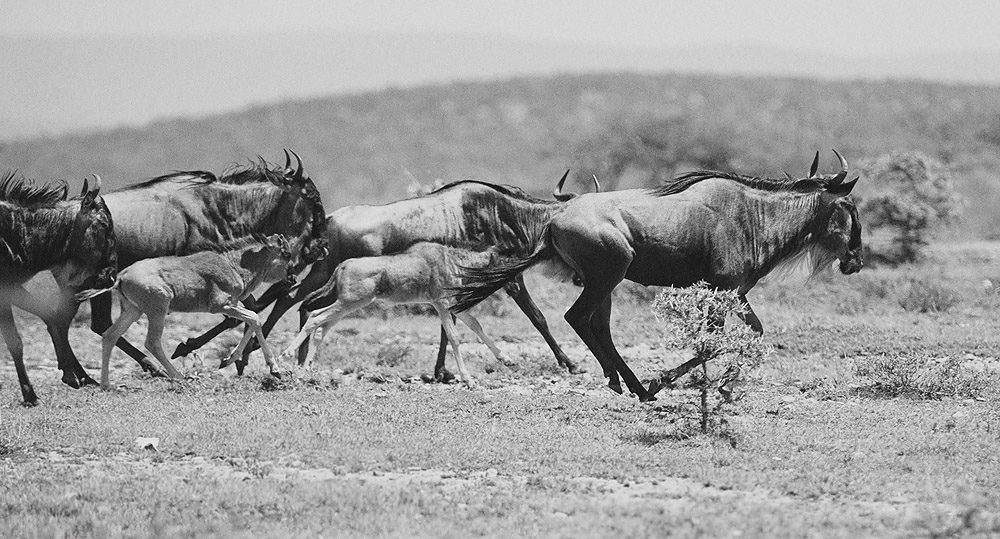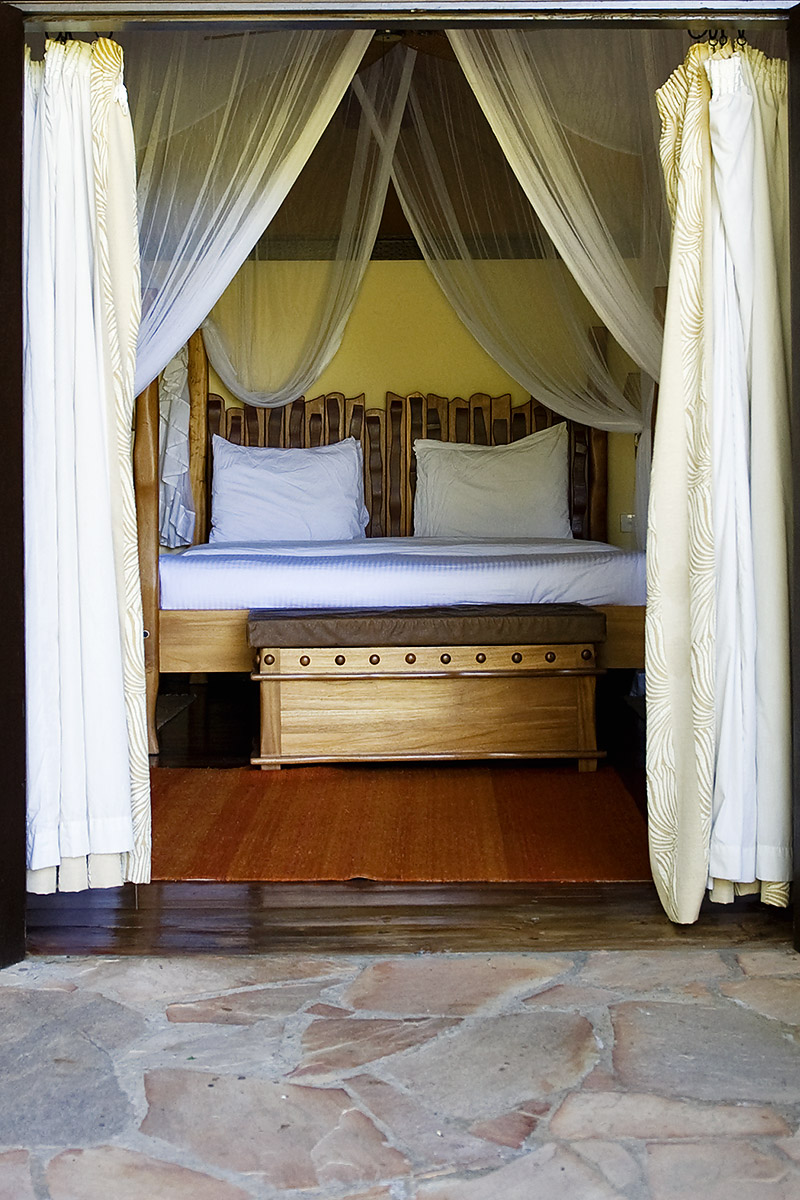 It’s 7:15 a.m. on Thursday morning and the traffic is light for Nairobi. We pass the US embassy on our left. Hotels going from luxury to hovelled as we leave the city center and hit the outskirts, from storied in both literature and height to a single dirt floor. The Masai Mara game reserve is a 5 hour drive from here if things go smoothly. It won’t rain.
It’s 7:15 a.m. on Thursday morning and the traffic is light for Nairobi. We pass the US embassy on our left. Hotels going from luxury to hovelled as we leave the city center and hit the outskirts, from storied in both literature and height to a single dirt floor. The Masai Mara game reserve is a 5 hour drive from here if things go smoothly. It won’t rain.
“Two bombs were found in Mombassa yesterday,” our driver tells us, craning into the mirror and passing back two waters and the Daily Nation with the headlines. “One of the bombs was fixed in a hotel telephone. Big enough to bring down a 15-story building,” he continues. “The moment they answer the phone ... BOOM!” he says, throwing his hands into the air. He quickly regains the steering wheel.
Pop cans and plastic water bottles litter the embankments roadside. There’s no garbage pick up here, no services. Garbage gets burned or tossed out the windows of vehicles. To our left coming up the dirt path there’s a Kenyan running like Phoebe from Friends, as rare a sight as a rhino. We pass a Caution, families crossing the road street sign. A speed limit sign reads “50”. The “50” is crossed out. A little ways down the road another sign says “60” and the “60” is crossed out.
We stop just before the long winding descent into the Rift Valley, at a tourist’s lookout. Ben our driver grabs a coffee while Daniel and I use the facilities and poke through some of the shops. I’ve met an incredible number of Johns this trip, runners and drivers and random street people asking if they can have my shoes, and now the one who owns this shop. He asks me if he can have my pen.
“But it’s my pen.”
I look at it, small in my small hands. It’s a teal pen, a Le Pen from Japan. It doesn’t smudge, even if you’re left-handed.
“Yes. I want a pen from Canada.”
A pen from Canada, I think. I look at the stalls along this strip, all of them painted the red-and-white of Coca Cola. Here businesses offer shopkeepers a free paint job on their buildings, and thereafter the conglomerates get free advertising. This entire strip is a big advertisement for Coca Cola. A little further down the road we’ll see the green shops claimed by Doublemint. A pen from Canada. It has a French name and is made in Japan. What is from Canada? What is from Kenya?
John of My Pen offers me a discount on a plate, but we don’t want to be travelling with anything extra right now so I tell him we’ll stop on the way back, and I hope we do. I hang on to my pen. Is this selfish? Should I be less attached to these things? My memory is horrible and I know if I don’t write down what I see I’ll forget. I feel a bit selfish. At this moment I feel privileged to a fault but I love my pen. Maybe I’ll give it to John on our return.
We’re back driving and dropping down onto the floor of the Rift Valley. There’s a sign saying “Beware of Flash Floods”. There’s a crushed car on a pedestal and the sign next to it reads “Slow Down.” Our driver speeds up. Even he isn’t entirely comfortable passing through these small towns. Daniel and I keep our cameras on our laps, below the windows and out of sight.
But we keep our windows open because down here it’s hot. Sunken into the valley the sun will burn you quickly. It torches the thermic landscape. Ben’s radio crackles and sometimes a voice breaks through, someone speaking in Swahili. We drive through the small villages and the smaller villages and past the country house standing alone, and then on to nothing but the burnt umber earth and the small green and browning bushes of the stretching and expanding veldt, almost shimmering in the low altitude African heat, nothing until suddenly here on the valley floor stand two enormous satellite dishes. And after that, nothing again.
Ben’s favourite fruit is the mango. His favourite animals are the giraffe and cheetah, but if we’re talking about what he likes to eat it’s goat, followed by gazelle and zebra. We cross a riverbed bone dry, with bones, and he tells us the bed fills up during the imminent rainy season. We learn more about the bombs, about the recent aggression of the Somalia against Kenya. The first three hours of our trip are on pavement and the last two hours are on rutted old roads. “Now it’s time for a free massage,” he warns us, smiling, as the tarmac falls away behind us.
We’ve booked luxury tents for the safari and we’re expecting something rustic, but as we pull through the Saraova Masai Mara game camp gate, shrouded by a thicket of trees, we’re already revising our expectations. A porter walks over to collect our bags. Another gentleman hands us wet facecloths scented with eucalyptus, to wipe the drive’s dust from our faces and hands. We’ve arrived at lunchtime and so they encourage us to leave our bags at the reception while they fill out paperwork, and they send us into the ... oh wow. Wow. A cheese counter. Oh. Here’s an entire glassed and chilled island of desserts. A woman with beautiful white teeth smiles and asks us if we want soup, and she displays the vegetables she can add to the base for us. Over there is the omelet station. The pasta station. There are darker areas to the west under the thatch I won’t even begin to explore. This place is scopious. I don’t know what you’d call a place like this. It’s an oasis. But it’s excessive too, there’s just so much. Whatever I had has been magnified. All of this is ours. We can eat whatever we want, as much as we want. I’ll never be hungry again. But over the past two days Johns have asked for my shoes and my pen. For anything, something more than what they have which is so little. My guilt has been amplified too, like I’m expanding. Breaking and expanding. Like what hearts should do, over again in life until we’ve become our best selves, is this true? These are thoughts I'll think about on the safari in a couple of hours, driving those meditative rolling green hills straight out of a Hemingway story.


